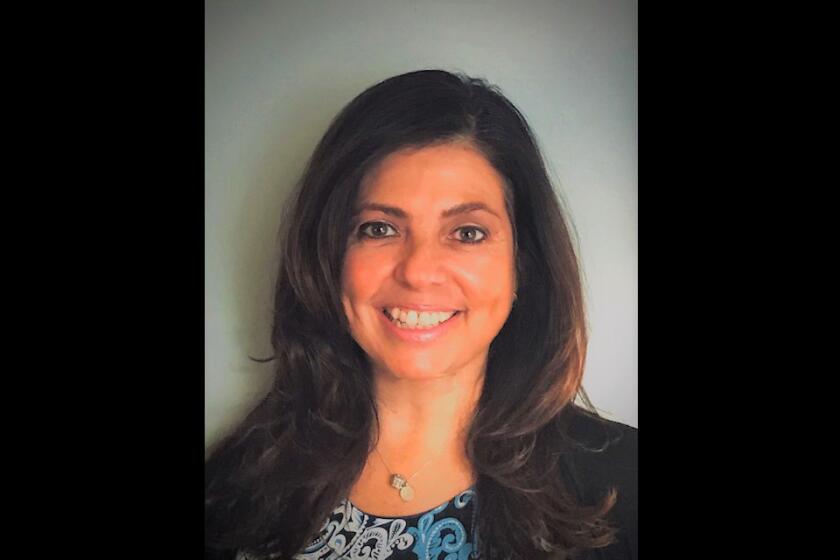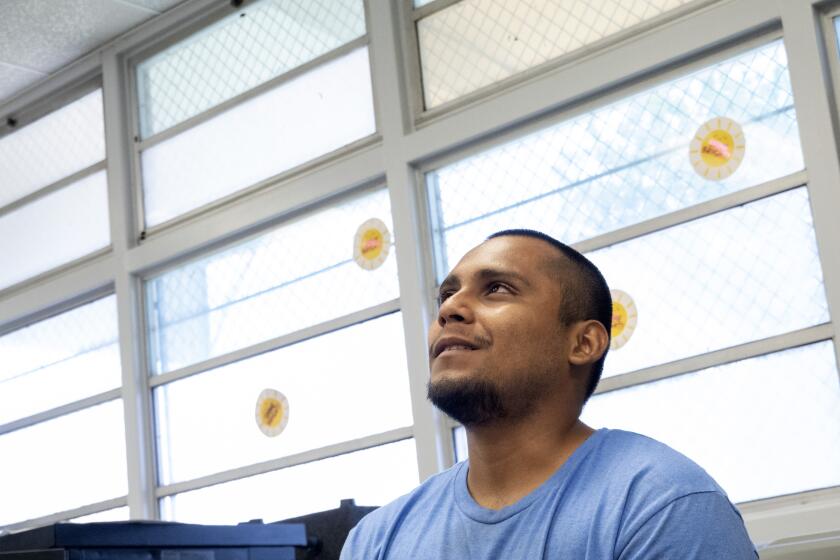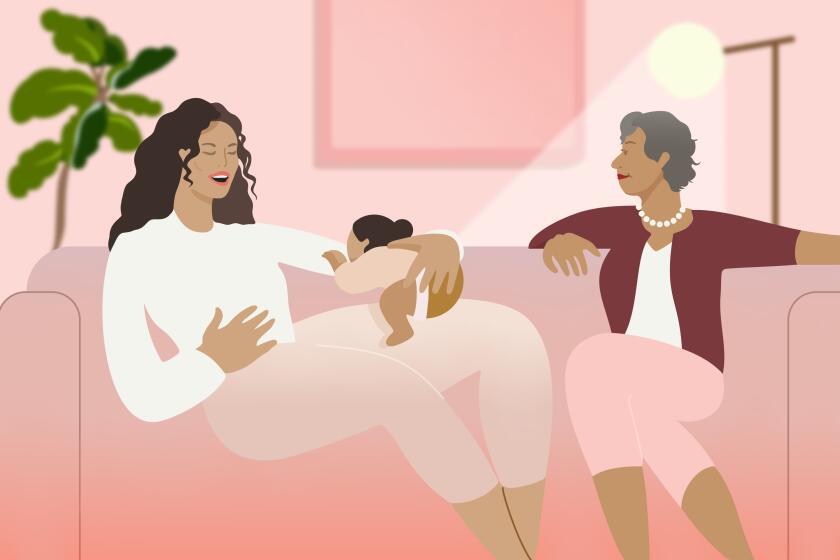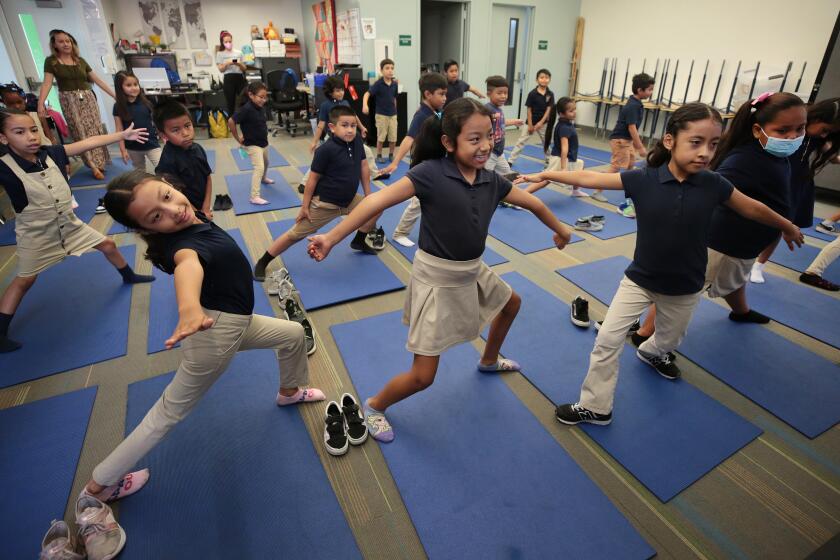Young adults in California experience alarming rates of anxiety and depression, poll finds
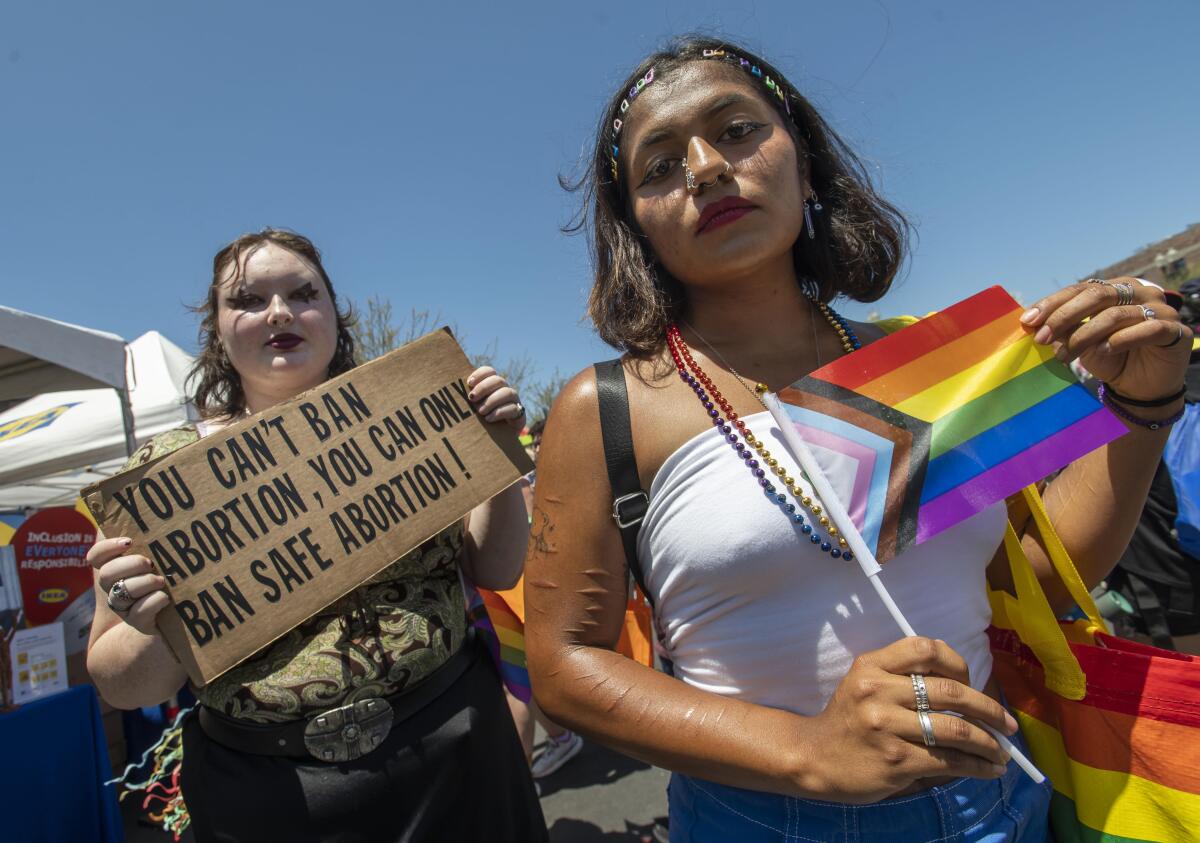
- Share via
Young adults in California experience mental health challenges at alarming rates, with more than three-quarters reporting anxiety in the last year, more than half reporting depression, 31% experiencing suicidal thinking and 16% self-harm, according to the results of a survey commissioned by the California Endowment.
The numbers reflect a years-long trend of worsening mental health among young people that was exacerbated by the COVID-19 pandemic, experts say.
The poll of nearly 800 Californians ages 18 to 24 also found young people facing significant barriers to getting help — with nearly half of those who wanted to speak to a mental health professional saying they had been unable to do so, and many saying cost or lack of access had stopped them.
The challenges reported by the poll are “extremely concerning,” said Dr. Benjamin Maxwell, interim director of child and adolescent psychiatry at Rady Children’s Hospital-San Diego, who was not involved in the survey.
“As a society we’ve underfunded mental health support for people for decades, and some of that is coming out in this survey.”
The poll reveals a generation under strain from a wide range of problems, with 86% saying the cost of housing was an extremely or very serious problem and more than three-quarters saying the same about the cost of college, lack of well-paying jobs, homelessness, drug and alcohol abuse, and the cost and availability of healthcare.
Mental health ranked just behind the cost of housing as a widespread problem for young adults, with 82% calling it an extremely or very serious problem.
When asked to pick a word that described how they felt about their generation’s future, the two dominant feelings were uncertainty and worry.
“If we compare this to what we get when we talk to [older] adults, we don’t see the same breadth and intensity of concern about this wide range of issues,” said pollster David Metz of the research firm Fairbank, Maslin, Maullin, Metz & Associates, which conducted the survey. “I think that says something about the burdens that young people are feeling.”
The poll was commissioned by the California Endowment, a statewide health foundation, in an effort to better understand the mental health challenges young people face. The endowment funds a variety of initiatives in California that engage in advocacy on mental health and other health-related issues.
Times reporters and editors worked with the endowment on the poll questions and vetted the methodology in advance of the survey.
A psychologist and expert in trauma urges professionals and parents to take a holistic approach to healing our children.
The survey was conducted Sept. 9-18 using an online panel. Because such panels are not probability-based samples, pollsters can’t use traditional margin of error calculations to describe the uncertainty that surrounds the results of any poll. Instead, pollsters can estimate the precision of the poll with a different statistical calculation known as a credibility interval. In this survey, that interval is roughly 5 percentage points in either direction.
This summer, the endowment helped host a two-day summit aimed at working with young people to find ways to respond to what U.S. Surgeon General Vivek H. Murthy has said is an emerging mental health crisis among youth.
Young people who participated in the survey and spoke to The Times described mental health difficulties made significantly worse by isolation and loneliness during lockdowns and school closures.
Alejandra Barba, 20, grew up in a home with a family she loves but who is strictly religious and does not accept her being gay. She was 11 years old when she started harming herself after having experienced abuse.
When the pandemic hit, she was a senior in high school. Suddenly, she was forced to stay home, isolated from friends and the academics at which she excelled and that kept her motivated.
“My mental health just declined rapidly,” she said. She attempted suicide twice and spent time confined in treatment facilities. At one facility, she was one of the only young women housed with several middle-aged and elderly men. The food was inedible and there was only one bathroom, with no lock on the door, she said.
Eventually, she managed to get into intensive outpatient therapy for a year, which improved her mental health significantly.
But getting that help took far too long, she said.
“The accessibility to therapists or resources that can help is very lacking,” she said. “I feel like there’s such a misallocation of money. It’s a huge problem.”
Overall, the survey found that women and those who identified as LGBTQ were significantly less likely to report positive evaluations of their mental health. Just over half of men reported their mental health as excellent or good, compared with one-third of women.
An influx of billions of dollars of state funding is aimed at addressing the crisis, but the need is urgent.
Five percent of those surveyed identified as gay or lesbian and 17% as bisexual. Among those young adults who identified as LGBTQ, one-fifth reported their mental health as excellent or good.
How To Save A Life
Pandemic stress, traumatic events and economic uncertainty have upended our world. This series aims to make the cascade of threats to your mental health a little easier to manage.
Another survey participant, who is 18 and attends community college in San Diego, said the loneliness of the pandemic left her feeling extreme anxiety.
Her junior year in high school was entirely remote. She had been a strong student but found it difficult to focus online or feel motivated. Some days she spent hours scrolling through TikTok videos.
Thirty percent of survey participants said they felt social media had a negative effect on their mental health, and those who spent more time online rated their mental health less positively.
“Your junior year is where you’re supposed to be looking for colleges and figuring out the important stuff,” she said. “At that time, it didn’t seem important to me.”
She asked The Times not to use her name to protect her privacy.
When she returned to campus for her senior year, “it was stressful and overwhelming,” she said. Her anxiety left her with stomach pains. She would vomit frequently and lost weight.
Now, as a freshman in college, she said, “my anxiety is a lot better since high school. But I’m still struggling with the symptoms.”
Schools need to offer more support to young people, she said.
“I know they have counselors,” she said, but “they need actual therapists at schools, like certified child therapists, to help students.”
Terra Bransfield, 22, a student at Sonoma State University, said she has struggled with body image issues and disordered eating. But she feels fortunate to have a supportive family and a close circle of friends with whom she feels comfortable talking about mental health.
How to talk about mental health in a multigenerational Latino household
Her friends talk openly about their challenges with depression, anxiety and body image, and share the things they do that help — like writing in a journal.
“I know that I’m supported and loved,” Bransfield said. “Oftentimes that’s the biggest thing — to know that you’re not alone.”
Although a majority of survey respondents said they found it difficult to talk with others about mental health, nearly three-quarters said they had talked to friends or family about their mental health or well-being.
Just over 4 in 10 respondents had talked with a therapist or other health professional about mental health issues. And 1 in 4 said they would like to talk with a professional but had not done so.
Bransfield said she feels both uncertain and optimistic about the future. Her struggles with eating have improved, but she knows they’re still part of who she is: She worries about financial security, about the need for social justice and about attacks on the rights of LGBTQ people. The impact of the loneliness she felt during the COVID-19 lockdowns has been long-lasting, she said.
But she also has big plans for her future — she’d like to open a dance studio cafe that will serve as a community gathering place.
“There is so much uncertainty, and that uncertainty can be really scary,” she said. At the same time, “you can be optimistic and happy and feel good about it.”
Maxwell, of Rady Children’s Hospital, said that though the survey results are distressing, he also feels optimism that things can improve.
“We have good treatments,” he said. “We know they work. We know what to do. We just have to get people access to those treatments.”
California is moving in a positive direction when it comes to offering support, Maxwell said, citing the state’s $4.7-billion effort to improve mental health for young people, which follows what Gov. Gavin Newsom has said was “decades of neglect.”
In a world that can often feel out of control, People’s Yoga aims to teach kids how to create a safe place of their own through mindfulness and meditation.
The state’s plan seeks to overhaul existing systems, including helping schools provide better treatment, creating virtual assessment platforms and developing suicide prevention programs.
Sarah Reyes, director of communications for the California Endowment, said the levels of worry, anxiety and depression reported by young people should be concerning to everyone.
“You never think of young people as being worriers. That’s usually left to all of us who are turning gray,” she said. “So we need to stop, and we need to listen and identify so that we can help them.”
More to Read
Sign up for Essential California
The most important California stories and recommendations in your inbox every morning.
You may occasionally receive promotional content from the Los Angeles Times.
